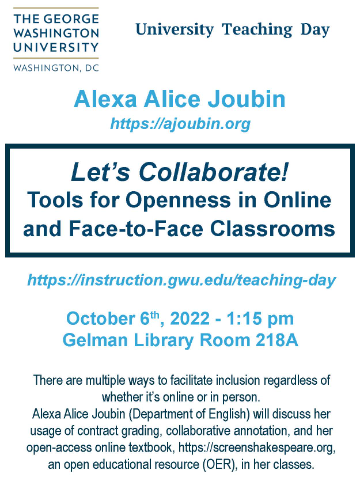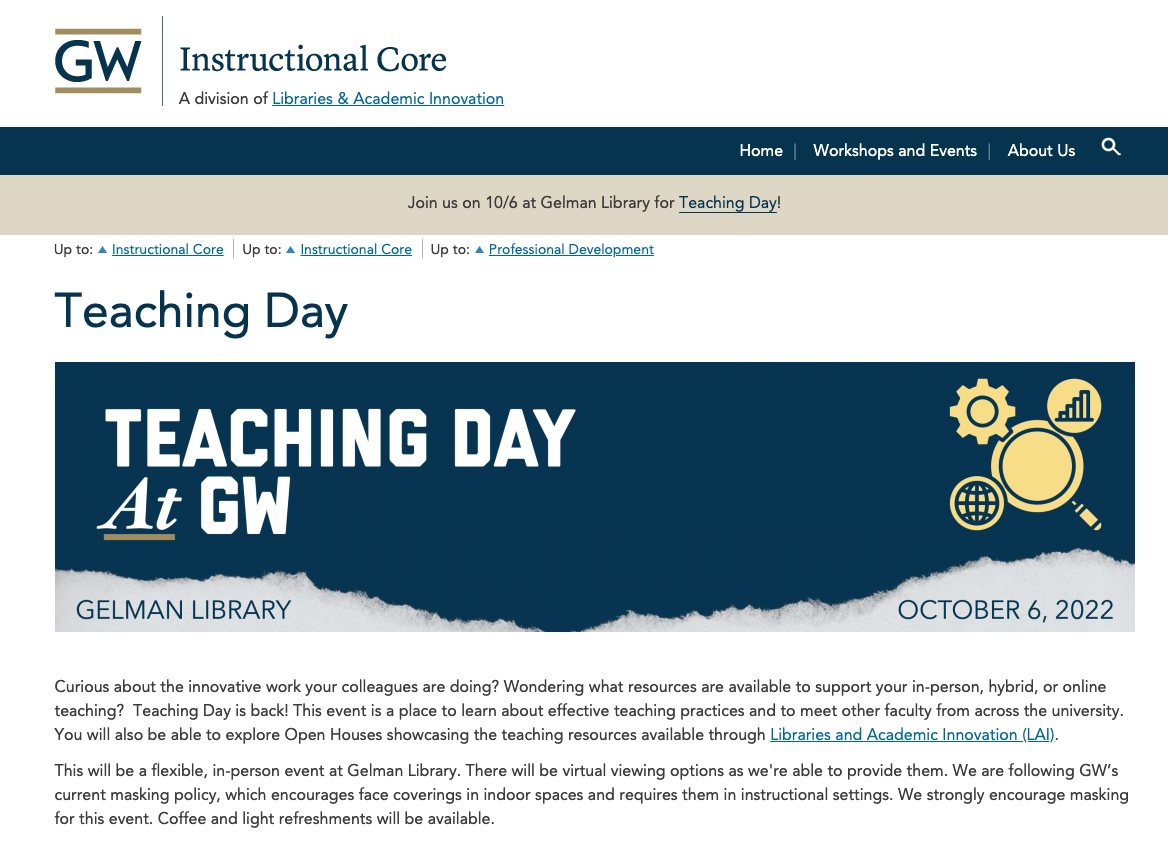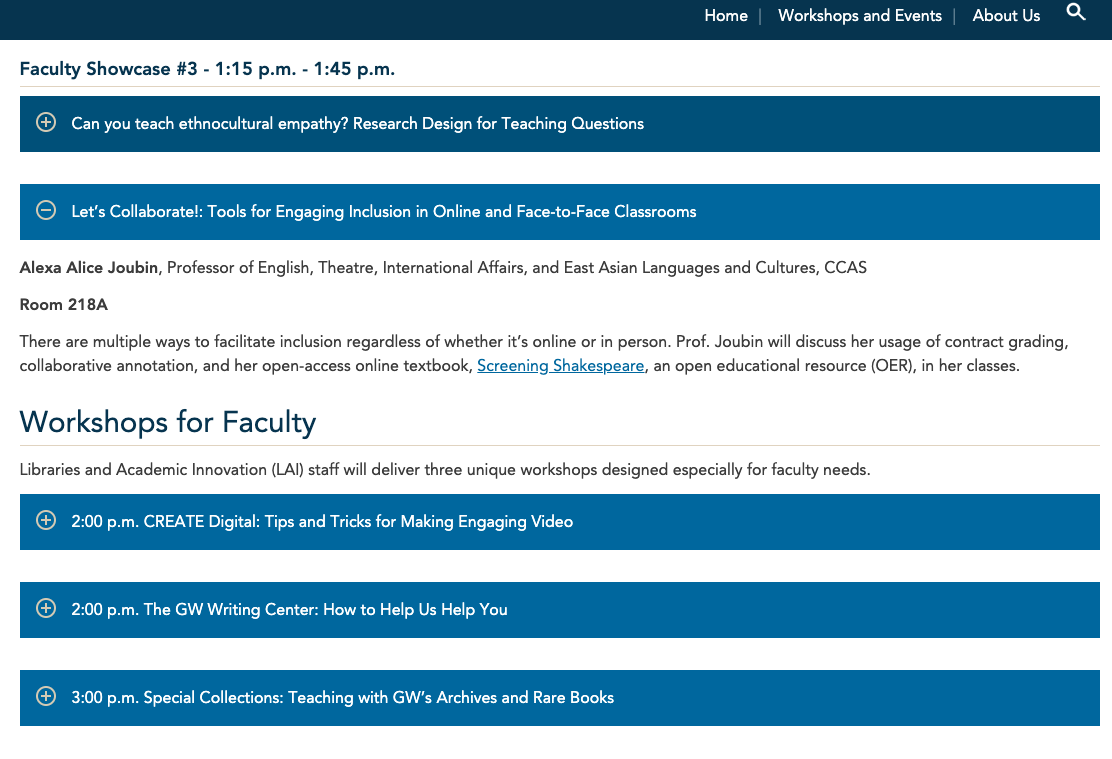George Washington University Teaching Day: Tools for Openness in Online and Face-to-Face Classrooms
Gelman Library Room 218A, 1:15 pm on Thursday, October 6, 2022 ::: Follow the lecture slides here
There are multiple ways to facilitate inclusion regardless of whether it’s online or in person. Alexa Alice Joubin will discuss her usage of contract grading, collaborative annotation using the Perusall social learning platform, and her open-access online textbook, Screening Shakespeare, an open educational resource (OER), in her classes.
Alexa uses contextualized and collaborative pedagogies to encourage students to learn from each other and build a sustainable intellectual community.
Screening Shakespeare, located at screenshakespeare.org/, is an open-access web-based textbook designed by Alexa Alice Joubin. The openly-licensed learning modules in this Open Educational Resources (OER) introduce students to key concepts of film studies, such as mise-en-scène, cinematography, sound and music, and film theory within the context of film adaptations of Shakespeare’s plays. This website is designed with the principle of multimodal access. There are multiple pathways to the contents with plenty of cross-references.
Perusall incentivize and supports students’ collaborative annotation of texts and film clips within a social space. They create and share free-form responses to the cultural texts. The course material is thereby transformed into a museum with many rooms. When completing assignments, students wander into and explore different rooms depending on their interests. When we convene as a class, students share their findings. Students are enriched by their individualized yet connected explorations.
The system of contract grading empowers students by rewarding effort and consistency. We focus on getting the most out of each assignment and enjoy the writing process. Individual assignments are not graded in the traditional manner. Instructor’s feedback focuses on substantive matters rather than justifying a grade.
The writing is not graded for quality, though feedback does address the strengths and weaknesses of the work, similar to how scholarly peer reviews work in the real world.



